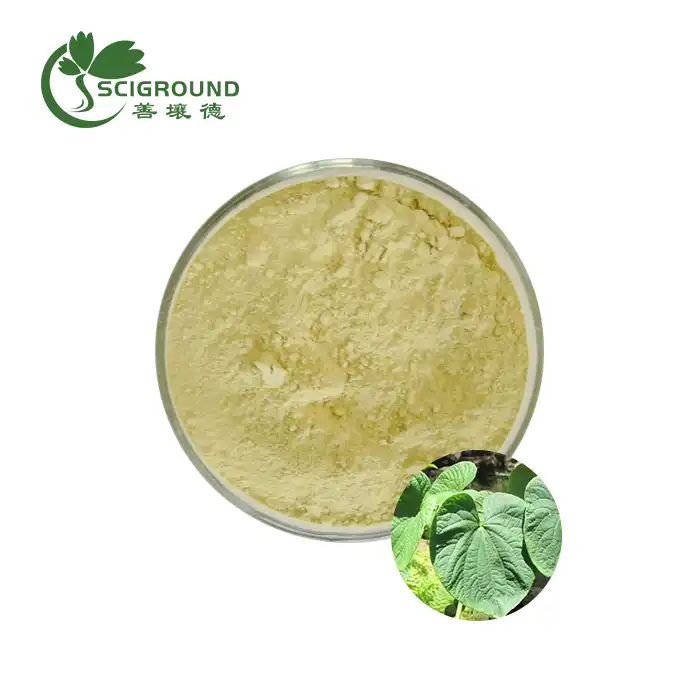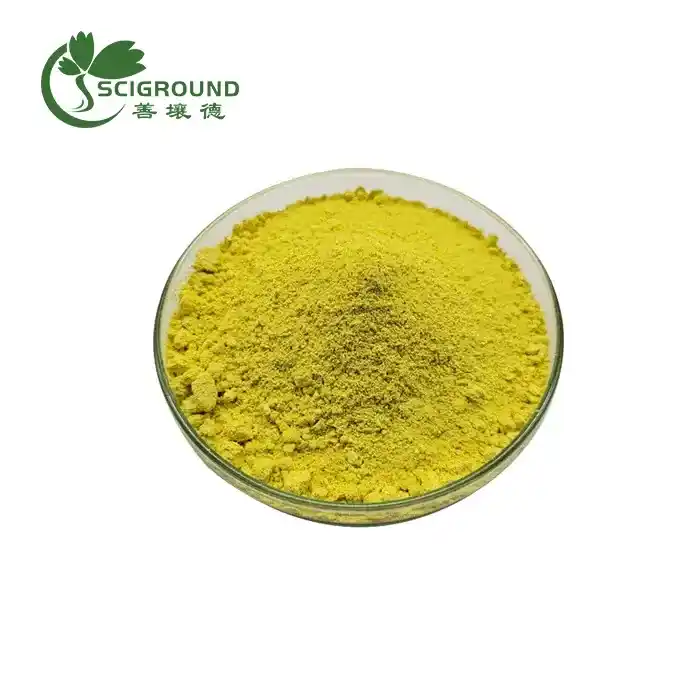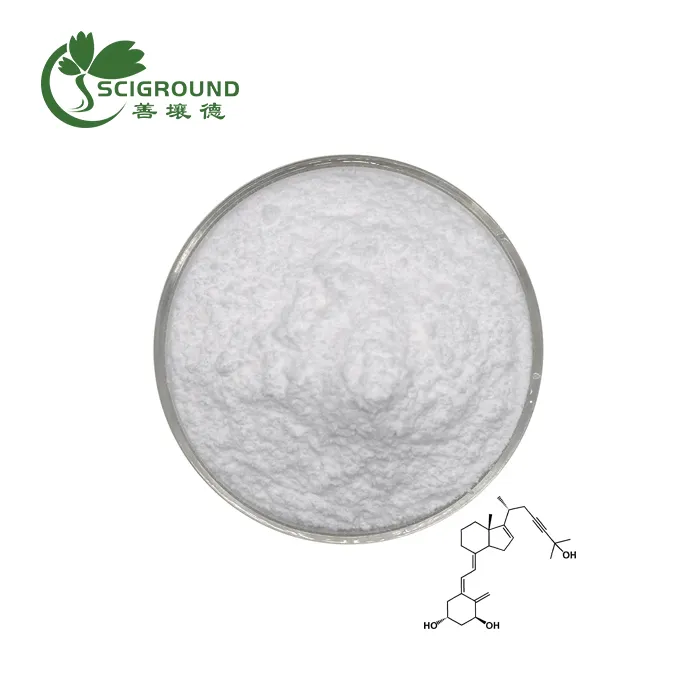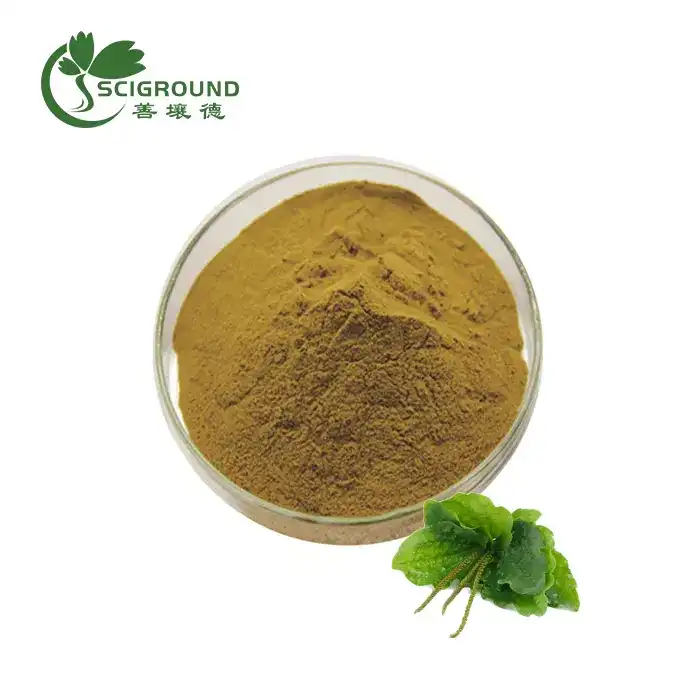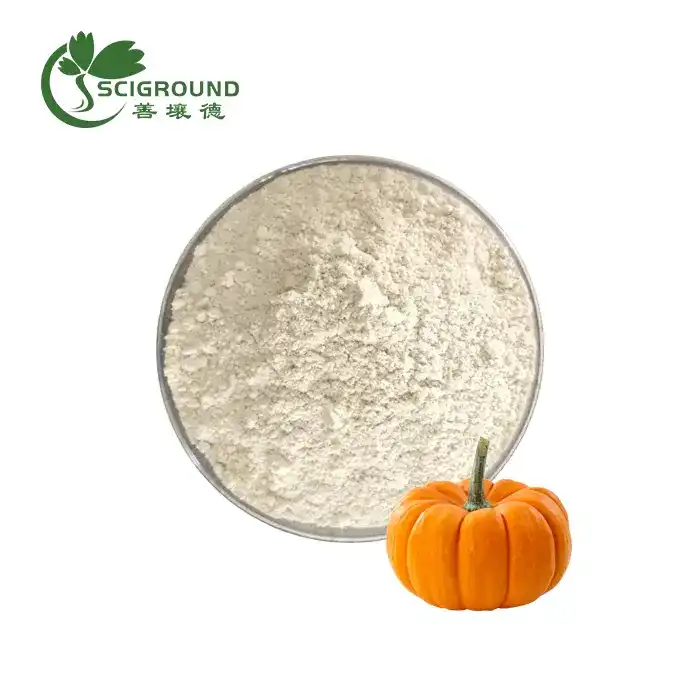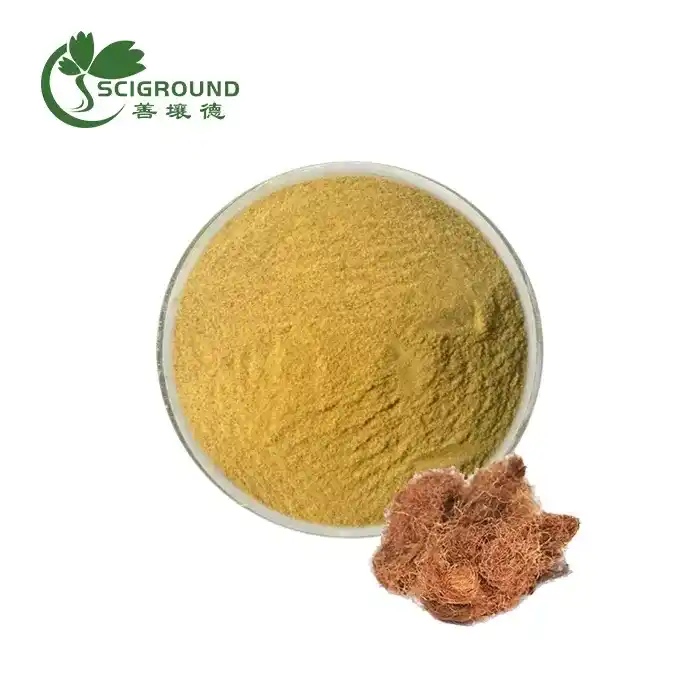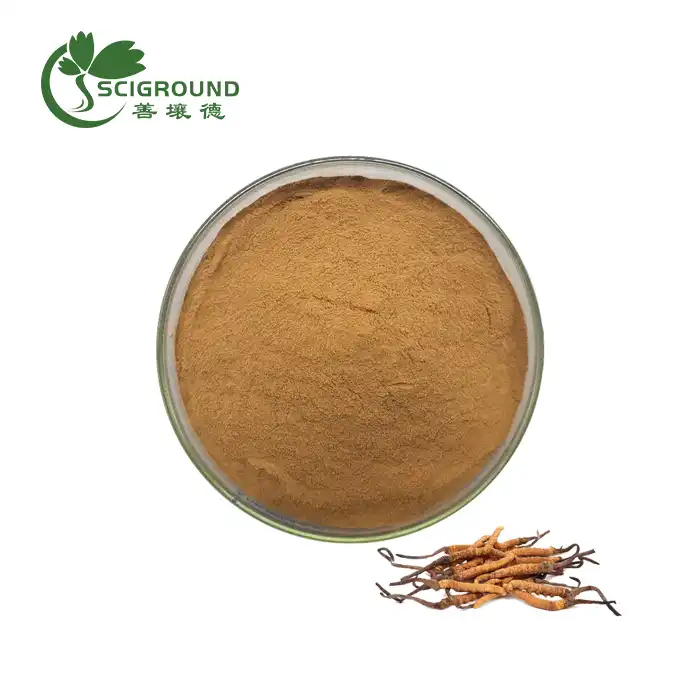Waht are the health benefits of Myrrh Extract?
Myrrh extract, derived from the resin of Commiphora trees, has been used for centuries in traditional medicine practices. Today, modern research is uncovering the potential health benefits of this ancient remedy. Let's explore the uses, composition, and precautions associated with myrrh extract.
What are the Uses of Myrrh Extract?
Myrrh extract has a wide range of applications, both traditional and modern. Its versatility makes it a popular ingredient in various products and treatments.
Fragrance and Flavoring
The aromatic properties of myrrh extract make it a prized ingredient in perfumes, incense, and other fragrant products. Its distinctive scent adds depth and complexity to many fragrances. In the culinary world, myrrh extract is used as a flavoring agent, imparting a unique bitter-sweet taste to certain foods and beverages.
Traditional Medicinal Uses
Historically, myrrh has been used to treat a variety of ailments. In Ancient Egypt, it was employed to address hay fever and herpes. The Greeks recognized its antiseptic properties, using it to clean battle wounds. Today, myrrh extract continues to be used in traditional medicine for its potential therapeutic benefits.
Oral Health
Myrrh extract is often found in oral care products due to its potential benefits for dental health. It may help with issues such as gingivitis, mouth sores, and bad breath. Some people use myrrh-infused mouthwashes or apply the extract directly to affected areas in the mouth.
Skin Care
The potential anti-inflammatory and antimicrobial properties of myrrh extract make it a popular ingredient in skincare products. It's used topically to address various skin concerns, including minor wounds, abrasions, and certain skin conditions.
Potential Therapeutic Applications
Recent scientific studies have begun to explore the potential health benefits of myrrh extract. While more research is needed, preliminary findings suggest possible applications in areas such as:
- Antioxidant support
- Pain management, particularly neuropathic pain
- Anti-inflammatory effects, potentially beneficial for conditions like rheumatoid arthritis
- Possible anticancer properties, though this area requires extensive further research
What is Myrrh?
Myrrh is a resinous substance extracted from trees belonging to the genus Commiphora. These trees are native to regions in the Middle East and Northeast Africa, thriving in arid and semi-arid climates.
Botanical Origin
The primary species used for myrrh production is Commiphora myrrha, though other species such as C. guidottii and C. erythraea also yield myrrh. It's important to note that Commiphora mukul, while related, is not a source of myrrh but rather of a different resin called guggul.
Extraction Process
Myrrh is harvested through a process called tapping. Shallow incisions are made in the bark of the Commiphora trees, causing them to exude a sap-like substance. This resin slowly hardens into tear-shaped globules, which are then collected and processed.
Chemical Composition
Myrrh's complex chemical makeup contributes to its various properties and potential health benefits. Key components include:
- Terpenoids: These compounds are responsible for myrrh's characteristic odor and may contribute to its potential therapeutic effects.
- Sesquiterpenes: These molecules may play a role in myrrh's potential anti-inflammatory and analgesic properties.
- Furanoeudesma-1,3-diene: This compound is unique to myrrh and contributes to its distinctive scent.
Historical Significance
Myrrh has held cultural and religious importance for millennia. It's mentioned in various ancient texts, including the Bible, where it's famously described as one of the gifts brought to the infant Jesus by the Magi. The word "myrrh" itself comes from the Arabic "murr," meaning "bitter," a reference to its taste.
What are the Special Precautions and Warnings of Myrrh?
While myrrh extract has potential benefits, it's crucial to be aware of possible risks and contraindications. Always consult with a healthcare professional before using myrrh extract, especially if you have existing health conditions or are taking medications.
Pregnancy and Breastfeeding
Myrrh is considered unsafe for use during pregnancy. It may stimulate uterine contractions, potentially leading to miscarriage. There's insufficient data on the safety of topical use during pregnancy, so it's best avoided. Breastfeeding mothers should also refrain from using myrrh due to a lack of safety information.
Diabetes Management
Myrrh may affect blood sugar levels. If you have diabetes or are taking medications that influence blood glucose, exercise caution when using myrrh extract. Regular blood sugar monitoring is crucial if you decide to use myrrh.
Heart Conditions
Large amounts of myrrh can impact heart rate. If you have a pre-existing heart condition, consult your healthcare provider before incorporating myrrh into your regimen.
Surgery Considerations
Due to its potential effects on blood glucose levels, myrrh use should be discontinued at least two weeks prior to scheduled surgery. This precaution helps prevent interference with blood sugar control during and after the procedure.
Fever Management
Some evidence suggests that myrrh might exacerbate fever. If you're experiencing a fever, it's advisable to avoid myrrh use or consult with a healthcare professional first.
Systemic Inflammation
While myrrh is often touted for its anti-inflammatory properties, individuals with systemic inflammation should exercise caution. In some cases, myrrh might potentially worsen inflammatory conditions.
Uterine Bleeding
Myrrh has been traditionally used to stimulate menstrual flow. However, this property means it should be used cautiously by individuals with uterine bleeding conditions, as it may exacerbate symptoms.
Potential Drug Interactions
Myrrh may interact with certain medications. These could include:
- Blood thinners: Myrrh might affect blood clotting.
- Diabetes medications: As mentioned, myrrh could impact blood sugar levels.
- Certain pain medications: Myrrh might enhance the effects of some analgesics.
Always inform your healthcare provider about any supplements or herbal products you're using, including myrrh extract.
Quality and Purity Considerations
When purchasing myrrh extract, ensure you're obtaining it from a reputable source. The quality and purity of herbal products can vary significantly, potentially affecting both efficacy and safety. Look for products that have undergone third-party testing and provide clear information about their sourcing and manufacturing processes.
In conclusion, while myrrh extract offers intriguing potential benefits, it's crucial to approach its use with caution and awareness. The growing body of scientific research on myrrh is promising, but many aspects of its effects on human health require further study. As with any supplement or alternative treatment, it's best to consult with a qualified healthcare professional before incorporating myrrh extract into your health regimen.
References:
- Shen T, Li GH, Wang XN, Lou HX. The genus Commiphora: a review of its traditional uses, phytochemistry and pharmacology. J Ethnopharmacol. 2012;
- Haffor AS. Effect of myrrh (Commiphora molmol) on leukocyte levels before and during healing from gastric ulcer or skin injury. J Immunotoxicol. 2010;
- Su S, Wang T, Duan JA, Zhou W, Hua YQ, Tang YP, Yu L, Qian DW. Anti-inflammatory and analgesic activity of different extracts of Commiphora myrrha. J Ethnopharmacol. 2011;
- Nomicos EY. Myrrh: medical marvel or myth of the Magi? Holist Nurs Pract. 2007;
- Shalaby MA, Hammouda AA. Analgesic, anti-inflammatory and anti-hyperlipidemic activities of Commiphora molmol extract (Myrrh). J Intercult Ethnopharmacol. 2014;
- Dolara P, Corte B, Ghelardini C, Pugliese AM, Cerbai E, Menichetti S, Lo Nostro A. Local anaesthetic, antibacterial and antifungal properties of sesquiterpenes from myrrh. Planta Med. 2000;
If you're interested in learning more about myrrh extract powder or any of our other plant extract products, please don't hesitate to reach out. Our team at Shaanxi SCIGROUND is always ready to answer your questions and provide more information. Contact us at info@scigroundbio.com to explore how our high-quality extracts can benefit your business or personal health journey.
Related Industry Knowledge
- How many benefits in Organic Ginger Powder?
- What are the benefits of Muira Puama Extract Powder?
- What are Special Precautions and Warnings of Mangosteen Extract Powder?
- What you need to know before you take Acetylcysteine 200 mg Powder
- What is horseradish powder used for?
- how to use stevia plant
- Is there a downside to taking berberine?
- What is the best form to take cordyceps?
- How long does capsaicin last?
- Is Capsaicin Good For You?
